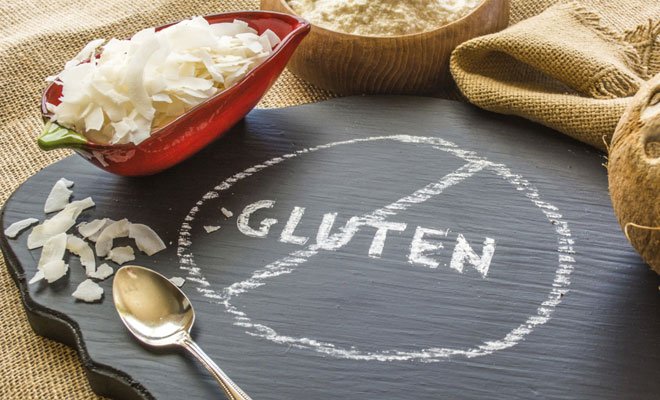The Truth About Cutting Gluten

Is Gluten Bad for Your Health?
Are you constantly tired and bloated? Does eating leave you feeling heavy or sluggish? If so, you might have gluten intolerance. An overwhelming number of studies have linked gluten to inflammation, leaky gut, low immunity, heart disease, and even cancer. Statistics show that more than one third of Americans are trying to eat gluten free. Things are even worse for those who suffer from Celiac disease where even a small amount of gluten may cause nutritional deficiencies and gastrointestinal distress.
The studies on gluten are conflicting. Some claim that gluten affects human health on long term, while others say that it is safe. Researchers have noticed higher rates of obesity, irritable bowel syndrome, and digestive problems in those who eat gluten regularly. Many people who removed this protein from their diet reported greater energy, weight loss, and improved mood.
Gluten might increase your risk of skin disorders, anemia, schizophrenia, depression, chronic fatigue, weight gain, and hormonal imbalances. It also disrupts the mucus membrane in your gut, causing ulcers and upset stomach. Other possible complications include bacterial overgrowth, cardiovascular disease, premature aging, diabetes, hypothyroidism, and autoimmune disorders.
How to Eat Gluten Free
Going gluten free is one of the best things you can do for your health. Not only you’ll have more energy and stamina, but also slim down and enjoy better digestion. The key is to read food labels carefully and watch for hidden sources of gluten, such as pastas, pita, croissants, pretzels, corn flakes, rice puffs, waffles, beer, sauces, and salad dressings. Gluten can be found in wheat and its derivates (durum, farro, spelt, etc.) as well as in rye, barley, malt, and brewer’s yeast.



Be aware that many “safe” foods can be easily contaminated with gluten. These include oats, baked goods, French fries, potato chips, condiments, and dietary supplements. Giving up gluten may seem difficult at first, but you’ll eventually get used with it. From beef, chicken, and fish to mozzarella and veggies, there are many delicious gluten-free foods available today.
Conclusion
Gluten has been linked to numerous health problems, and adopting a gluten-free diet can greatly improve your overall well-being. By reading food labels carefully and being aware of hidden sources of gluten, you can make informed choices about the foods you eat. Remember that giving up gluten may take some time to adjust, but the benefits to your health will be well worth the effort.
FAQs
Q: What are the benefits of a gluten-free diet?
A: A gluten-free diet can improve energy levels, weight loss, and digestion, and may reduce the risk of chronic diseases such as heart disease, diabetes, and certain cancers.
Q: How do I know if I have gluten intolerance?
A: Symptoms of gluten intolerance include bloating, abdominal pain, diarrhea, fatigue, and headaches. If you experience these symptoms after consuming gluten, you may want to speak with a healthcare professional about testing for gluten intolerance.
Q: What foods are naturally gluten-free?
A: Many fruits, vegetables, lean meats, and fish are naturally gluten-free. Some grains, such as rice, quinoa, and corn, are also gluten-free. Always check the ingredients label to ensure that packaged foods are gluten-free.
Q: Can I still eat out while following a gluten-free diet?
A: Yes, many restaurants now offer gluten-free options. Be sure to inform your server of your dietary restrictions and ask about gluten-free menu items. You can also look for restaurants that are certified gluten-free or offer a gluten-free menu.

